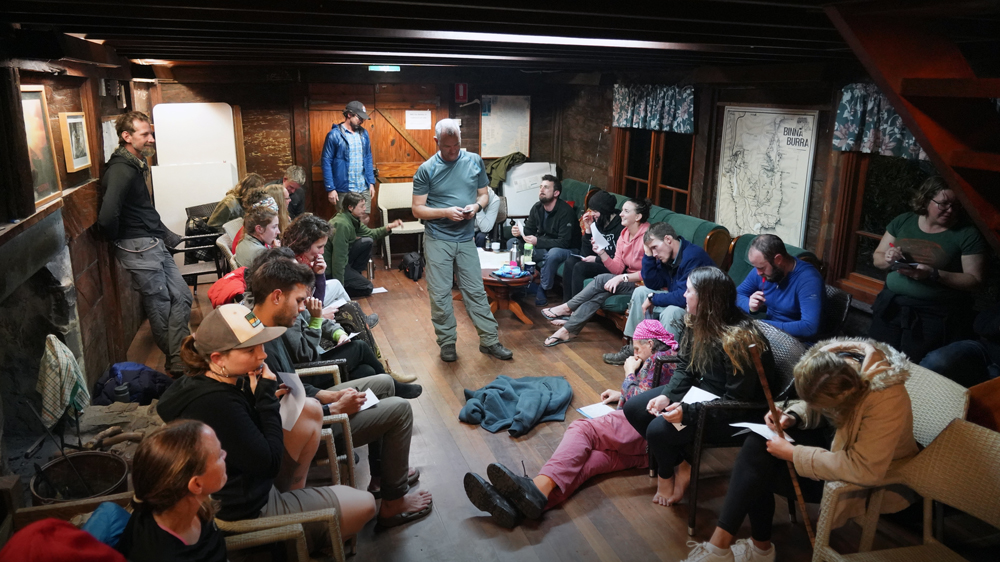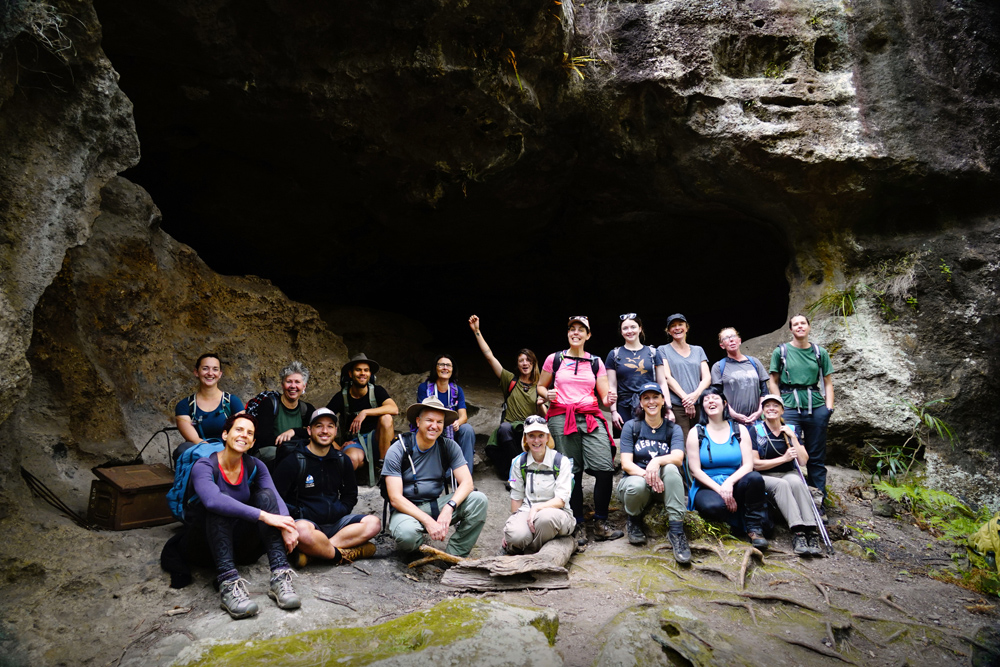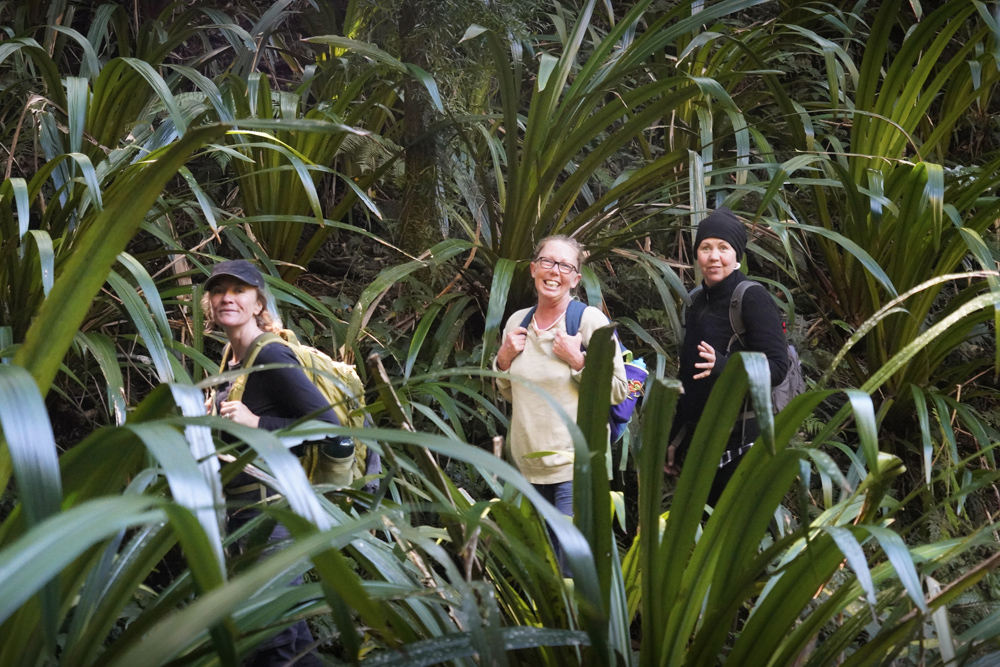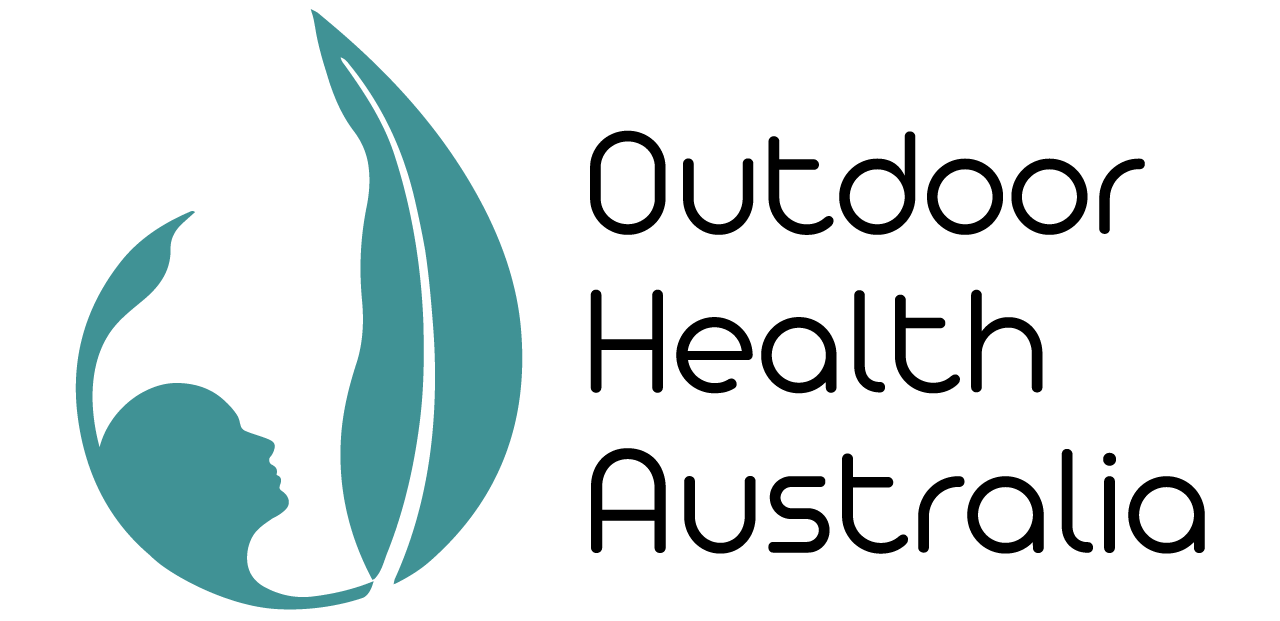Background
Australian outdoor practitioners have been networking locally, nationally and internationally since at least the early 1990’s. Since AABAT’s incorporation in 2008, many outdoor educators, counsellors, therapists, health practitioners, researchers, and other interested people, have found a ‘home’ within the AABAT community, and have enjoyed strong connections with our ‘International Adventure Therapy family’ spanning more than 24 nations.
Over the decades, while many people have put in countless unpaid hours to support and build the AABAT community, our engagement with Governments has been local and piecemeal rather than national and strategic. In order to better engage with the Government, and better place BAT practices in the spotlight of mainstream health and service systems, AABAT called for ‘Expressions of interest’ to lead a Policy working group in 2018. As a result, AABAT’s Outdoor Health Policy Unit was formed.
The Outdoor Health Policy Unit is a small volunteer working group who in 2018 offered to take on the job of “increasing AABAT’s capacity to strengthen the field by developing and communicating public policy, research and accreditation” (Policy Unit EoI, 2018; ToR 2019).
The Policy Unit directly or indirectly supports all five of AABAT’s ‘Intended actions’ (developed in 2007 prior to incorporation, and ratified at the 2008 AGM), including: 1. To promote Bush Adventure Therapy as a credible and beneficial form of therapeutic intervention, 2. To refine and uphold safe and ethical practices within the Bush Adventure Therapy community, 3. To provide opportunities to share, analyse and promote stories of success, 4. To maintain an open forum for discussion and exchange of resources amongst the BAT community, and 5. To represent the community and practice of BAT to relevant professional bodies, associations and organisations (AABAT intended-actions).

Scope
The Policy Unit’s ‘Terms of Reference’ (endorsed by the AABAT committee in April 2019) identified four areas of focus, which have formed the basis of our Three Year ‘Outdoor Healthcare Strategy and Action Plan’ (developed in 2020, updated in March 2021) and guided our combined efforts since then. The four areas of focus have been: 1) Community-building and policy development for the emerging outdoor health sector, 2) Government engagement and advocacy, 3) Quality and accreditation, and 4) Research and evaluation (Policy Unit ToR, 2019).
An overarching aim of the Policy Unit since its endorsement has been to “scope the feasibility of establishing a national Peak body” so as to allow AABAT to: engage more purposefully with federal and state governments; provide advice to government and non-government stakeholders through research, consultation, partnerships and advocacy; advocate BAT’s value in health across the continuum of public need, from prevention through treatment to continuing care; develop policy and practice guidelines to support best practice and research excellence; and investigate systems and frameworks to allow future BAT certification (Policy Unit ToR, 2019).
Over the last 3 years, with guidance from Aboriginal and specialist mentors Aunty Judy Atkinson, Uncle Ken Jones, Carlie Atkinson, Luke Mabb and Jacob Prehn, input from AABAT members and proponents of related nature-based health practices, and discussions with wide-ranging policy makers, the Policy Unit has progressed a number of specific goals and objectives. Consistent with AABAT’s roots, collaboration and consultation continue to be deeply valued and central to the work of AABAT’s Policy Unit.
Policy Unit Updates
The Unit’s Three Year ‘Outdoor Healthcare Strategy and Action Plan’ 2020-2022 included the following aspirations, goals and objectives:
- Year 1 (2020) – Create a new sector at the juncture of nature and health. Goals: 1. Create and promote a new sector, 2. Identify, connect and find common ground within the new sector, and 3. Build the evidence base.
- Year 2 (2021) – Establish a new sector of nature-based health services. This includes nature-based practices and health services that access nature for health, wellbeing and healing outcomes. Goals: Strengthen the Outdoor Health evidence base, 2. Formalise collaborative practice frameworks, 3. Establish a legal/financial OH entity, and 4. Communicate with the emerging OH sector and formalise advocacy to grow financial investment in the sector.
- Year 3 (2022) – Establish a national Peak body with strong sector connections, a funded advisory role to government, and capacity to support the continued development of the sector. Goals: 1. Be funded to represent and support the OH sector, 2. Grow evidence for practice/ be recognised as a mental health treatment, 3. Sector development.
Key initiatives and actions undertaken by the Policy Unit to date:
2020
- developed AABAT’s Outdoor Healthcare website
- convened a national online Nature & Health – Practice, Research & Policy Symposium
- hosted a Masters in Social Work student who undertook a Literature review to identify common elements across diverse nature-based health practices
- convened fortnightly Outdoor Health Practice Roundtables and a whole-day Outdoor Health Roundtable
- convened a 4-hour national Outdoor Health Research Forum
- developed and launched an Outdoor Health Service Directory
- convened an open Outdoor Healthcare Training and Accreditation meeting
- disseminated research and practice via website and mailouts explored Peak Body requirements regarding terminology, entity type, intellectual property established pro bono arrangements and sought legal advice in areas of IP, trademarking, and corporate lawengaged with federal and state policy makers in areas of health, mental health, Aboriginal affairs, education and community, to name a few
- promoted AABAT and outdoor healthcare to a new larger sector via website, facebook and an expanded mailing list .
2021
- submitted an application to the Australian Federal Department of Health ‘Health Peak and Advisory Bodies (HPAB) Grant Program’, to seek Peak Body status for AABAT under the name Outdoor Health Australia – unsuccessful
- convened our second national Outdoor Health Research Forum at the University of Tasmania and online
- established partnerships and an interdisciplinary research team to progress funding and grant opportunities for an Outdoor Healthcare Randomised Control Trial to compare indoor counselling with outdoor therapy
- represented AABAT’s Outdoor healthcare initiative within national research alliances and numerous national network meetings explored regulation and accreditation options, including the National Alliance of Self Regulating Health Professionals
- hosted 2 Masters in Social Work studentssupported AABAT submissions to the Victorian Department of Sport and Recreation for funding to support: 1. a paid full time 6 month AABAT position (enabled through covid recovery funding), and 2. further development and promotion of the Outdoor Health Service Directory (discretionary funding) – both successful helped orient and supervise AABAT’s paid employee Richelle Olsen
- convened a national Online Outdoor Health Symposium MC’d by Gardening Australia’s Costa Georgiadis
- developed understandings of peak body requirements via discussions with legal advisors in areas of IP, trademarking, and corporate law
- recommended that AABAT transition to a Company Limited by Guarantee to support Peak body aspirations
- provided information and consultation to AABAT committee and members regarding transition to a new entity
- continued to engage policy makers in areas of health, mental health, Aboriginal affairs, education and community
- continued promoting AABAT and outdoor health to a new larger sector
- Richelle has redeveloped the Outdoor Healthcare website to reflect a clearer role for AABAT in leading the new Outdoor Health sector.
2022
According to our Three Year Plan, this year we aspire to: Establish a national Peak body with strong sector connections, a funded advisory role to government, and capacity to support the continued development of the sector. Goals: 1. Be funded to represent and support the OH sector, 2. Grow evidence for practice/ be recognised as a mental health treatment, and 3. Sector development.
Until AABAT is funded to advise Government on practice, research and policy relating to BAT and outdoor therapies , or what we are calling ‘evidence-informed nature-based health practices and services’, Policy Unit members remain committed to working towards Peak Body status – we are here for the ‘long haul’. Whether the Policy Unit continues to operate as a discrete working group, or we dissolve the Unit and hand future work over to the AAABAT committee, perhaps taking up individual roles across various working groups, is yet to be decided.
In the short term, we plan to: 1. support explorations and decisions regarding transition to a new entity, 2. continue the investigation of appropriate name and governance structure for the proposed new entity, 3. contribute to the Special General Meeting in May, and 4. continue to build AABAT’s capacity to operate as a Peak Advisory Body, in particular through development of Policy Briefs.
An example of Policy Unit work about to come to fruition is the imminent publication of a Literature review undertaken by Josh McLean:
Drawing on more than 30+ fields of practice that activate nature for health, wellbeing and healing, this limited systematic review sought to identify the key common elements across the diverse approaches. Now in its final drafting stages, the research and policy unit hopes to publish this piece of work throughout 2022 to assist the broader projects of the Outdoor Healthcare movement, educate and inform the health industry and make these practices increasingly accessible to professionals interested in pursuing a career in Outdoor Health. Stay tuned for more updates.

What does being a ‘Peak Advisory Body’ mean?
As outlined in our application to the Australian Federal Department of Health, AABAT (or an adapted entity with a new name) will seek to “engage Government with evidence-based information, provide advice for policy decisions, and promote, educate and advocate for the range of evidence-informed health interventions that apply nature as an intentional setting, method or mechanism for human health, wellbeing and healing” (‘Health Peak and Advisory Bodies Grant Program’ submission, May 2021).
Building AABAT’s capacity to operate as a Peak Advisory Body will continue to involve the following kinds of development work:
• Consolidate research evidence from which to inform Government policy
• Provide well-informed and impartial information to guide Government investment
• Consolidate sector knowledge and expertise
• Engage and support OH service providers
• Strengthen sector regulation, quality and best practice
• Establish training and accreditation pathways
• Provide specialist training in trauma and mental health interventions
• Support responsive access to OH (e.g. child safety, bushfire recovery, emergency services, military service, domestic violence, etc.).
• Support greater access to OH services in states, territories and regions
• Enable networking and collaboration with other representative bodies
• Facilitate communication and consultation with the sector on a regular basis
• Enable representation of this sector to Government, and
• Help to reduce future fiscal health burdens.
Why bother doing all this work?
Like the AABAT committee and other hard-working members, Policy Unit volunteers feel personally and professionally motivated to support and advocate for the uptake of safe and effective bush adventure therapy and outdoor health practices in Australia. As stated at the National Outdoor Health Online Symposium 2021:
With growing awareness of human and environmental health realities, there is an increasing and necessary role for nature in our lives and within mainstream health systems. Research demonstrates that early access to outdoor health practices can prevent downstream illness, keep ill people out of hospital, and ameliorate a range of diagnosed physical and mental health issues. Empirical research demonstrates that active social time in nature builds physical, mental and social health, and life skills for all people across the lifespan. Theoretical evidence suggests outdoor health practices have a role to play in both preventing and ameliorating chronic illness. Anecdotal evidence suggests that outdoor health practices are healthy for practitioners as well as for clients. As governments and policy-makers grapple with new challenges, and the Australian community adapts to new realities, a collaborative and connected Outdoor Health sector provides promising cost-effective benefits for our physical, mental, social and cultural health. Best practice outdoor health practices: are guided by Aboriginal knowledge holders, promote human health, wellbeing and healing, support ecological health and planetary health, and exemplify sustainable health practices.
A team of about 10 AABAT members have contributed much time and ‘heart’ to the work of the Policy Unit over the past three years. Like the shared motivations that led to the formation of AABAT, we continue to believe that our collective work is strengthened through collaboration, and that our shared efforts are richer for our diversity. We’ve helped to ‘build a bigger tent’ that we hope is reflective of our AABAT ethical principles.
We each look forward to contributing to AABAT’s next steps, in whatever ways are useful,
Anita, Tom, Kate, Ben, Josh, Rob, Kylie, Amanda, Kit & Kent

